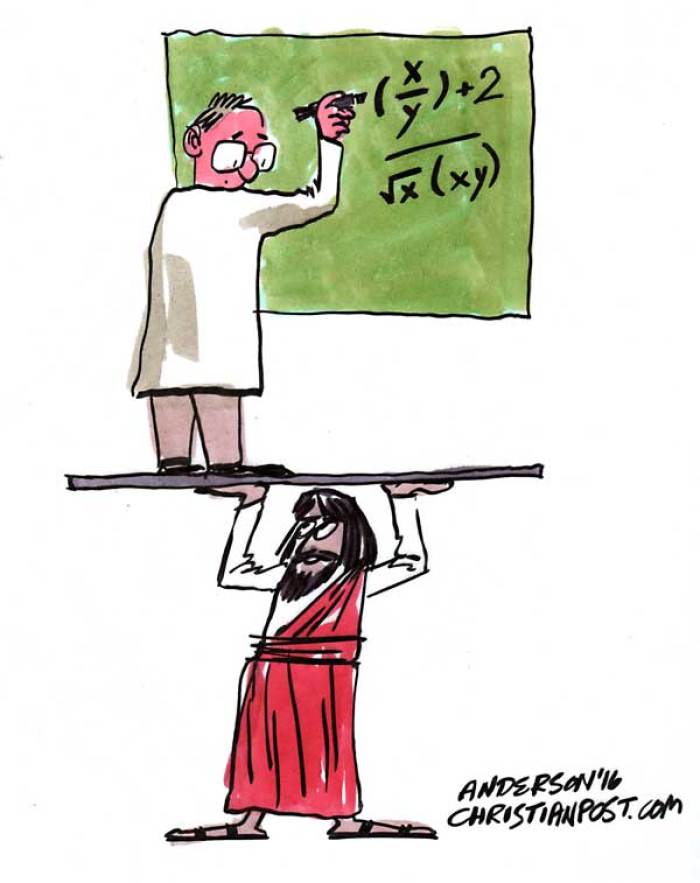Math Provides Compelling Evidence for God's Existence: Economist

An esteemed economist is claiming that mathematics offers extremely compelling evidence that God exists, despite the rising numbers of self-identified "nones" and hostility to religious faith in universities and intellectual circles.
Writing in The Conversation last week, Robert H. Nelson, a professor of public policy at the University of Maryland, noted that at a time where research consistently shows that more and more people are abandoning religious faith, the empirical evidence for belief in a supernatural god is also growing.
Nelson, author of the 2015 book God? Very Probably: Five Rational Ways to Think About the Question of a God, has been exploring the intersection of theology and science since the 1990s. He noted that for many years scientists have struggled to explain why the observable natural order always follows a precise mathematical calculus.
"Despite the many other enormous advances of modern physics, little has changed in this regard," he said, citing the words of Princeton physicist and Nobel Laureate Eugene Wigner who wrote that "the enormous usefulness of mathematics in the natural sciences is something bordering on the mysterious and there is no rational explanation for it."
Isaac Newton struggled for an answer for this most of his life, ultimately concluding that it was God's will, Nelson said.
"In other words ... it takes the existence of some kind of a god to make the mathematical underpinnings of the universe comprehensible," Nelson explained.
Leading scholars have argued that mathematics exists independent of physical reality.
While mathematicians discover the realities of this separate world of mathematical laws and concepts, physicists utilize those discoveries according to the rules of prediction and what can be observed using the scientific method.
Math in its own unique way explains how the world works. It is, according to MIT physicist Max Tegmark, a "fundamental world reality that drives the universe."
Nelson believes math operates in a "god-like fashion."
The mysterious connection between math and how it is seen in the natural order is similar to what Nelson calls the mystery of human consciousness.
Unlike the physical world and like mathematics, the human consciousness is an unseen phenomenon but is nevertheless real.
Though thoughts and images in one's consciousness cannot be gauged scientifically, "our nonphysical thoughts somehow mysteriously guide the actions of our physical human bodies," Nelson said.
"This is no more scientifically explicable than the mysterious ability of nonphysical mathematical constructions to determine the workings of a separate physical world."
Fervent atheists like Daniel Dennett have attempted to deny that consciousness altogether. But other prominent philosophers like Thomas Nagel believe that scientific materialism — the view that the material world is all that exists — inadequately explains human consciousness.
Perhaps most interestingly, though the development of the scientific method in Europe during the 1600s transformed the world in many ways, a revolution in human thought — "operating outside any explanations grounded in scientific materialism" — gave rise to the modern world, Nelson explained.
"That all these astonishing things happened within the conscious workings of human minds, functioning outside physical reality, offers further rational evidence, in my view, for the conclusion that human beings may well be made 'in the image of [a] God,'" he said.





























